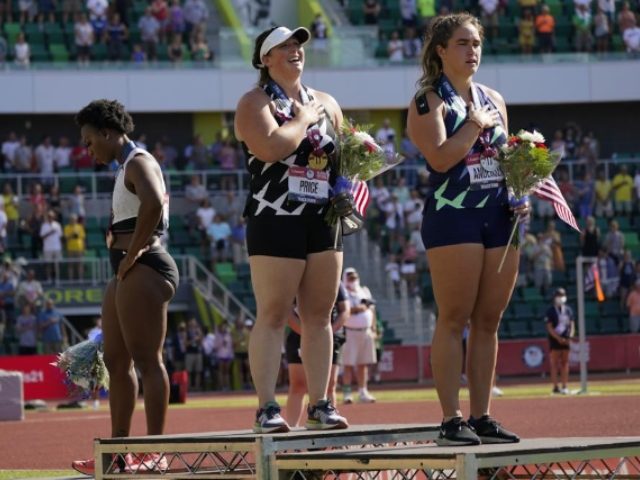On Friday, the International Olympic Committee (IOC) quietly modified its rule prohibiting athletes from making political statements during the Olympics.
The rule in question, Rule 50, has been a long-standing safeguard against allowing athletes to protest during the Olympic games. However, in response to mounting pressure from athletes and the recent controversy surrounding anthem-snubbing U.S. hammer thrower Gwen Berry, the IOC has moved to allow athletes much more leeway in expressing their political views.
According to USA Today:
Under the new guidance, athletes will be able to express their views on the field of play before competition so long is it is not targeted against people, not disruptive and not otherwise prohibited by national Olympic committees or international federations. Expressions during competition, in the Olympic village and during ceremonies — including medal, opening and closing ceremonies — remain prohibited under a longstanding rule in the Olympic charter baring ‘political, religious or racial propaganda.’
The move gives the athletes greater exposure for their protests and/or statements by allowing them to express their views on the playing field where cameras will find them. The IOC (in their view, probably) would dodge the appearance of sanctioning the protests by keeping them out of official ceremonies.
ABC news reports:
The USOPC released a nine-page document Tuesday to offer guidance about the sort of ‘facial and social demonstrations’ that will and won’t be allowed by the hundreds who will compete in coming months for spots on the U.S. team. The document comes three months after the federation, heeding calls from its athletes, determined it would not enforce longstanding rules that ban protests at the Olympics.
Berry is not the only U.S. athlete who has protested or expressed a desire to protest at the Olympics. Trans BMX freestyle rider Chelsea Wolfe wrote that he wanted to win at the Olympics so he could “burn a US flag on the podium.”

COMMENTS
Please let us know if you're having issues with commenting.